No, it's not recommended. Impact wrenches require specially designed impact sockets to withstand the high torque. Regular sockets may crack or shatter under the force, posing a safety risk. Always use the right tools for the job.
Delving into the world of power tools can be overwhelming, especially for beginners. One common question that pops up in the realm of impact wrenches is whether regular sockets can be seamlessly integrated into these powerful tools. If you're just starting out on your DIY journey or looking to expand your tool collection, this blog post breaks down the answer in simple terms, helping you grasp the essentials of impact wrench compatibility without getting lost in the technical jargon.
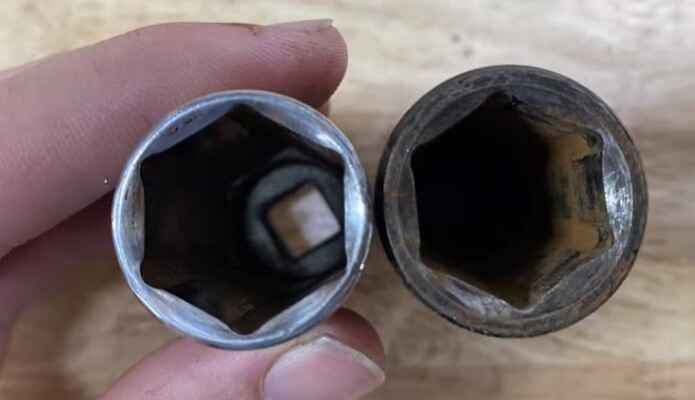
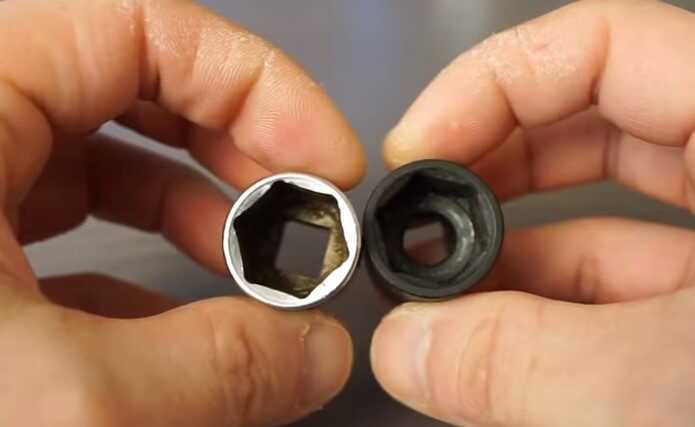
Yes. Impact sockets are designed to handle more torque and, therefore, can be used with a ratchet or breaker bar.
Regular sockets are not as strong and can break or strip if too much force is applied. They're also less likely to stay on the bolt or nut if it's being turned quickly. Impact sockets are made from a tougher material that can withstand more force, and they have a recess in the center that helps them stay attached to the bolt or nut.
Can I use regular sockets on the impact wrench?
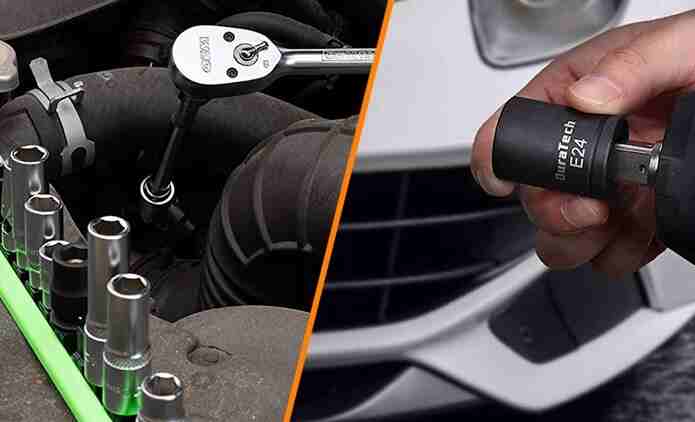
No, you should never use regular sockets on an impact wrench - they can shatter and cause serious injury. Impact wrenches are specifically designed to use impact sockets, which have a thicker construction that can withstand the intense forces generated by the tool. Regular sockets on an impact wrench can also damage the tool and reduce lifespan.
Why you should never use regular sockets with an impact driver?
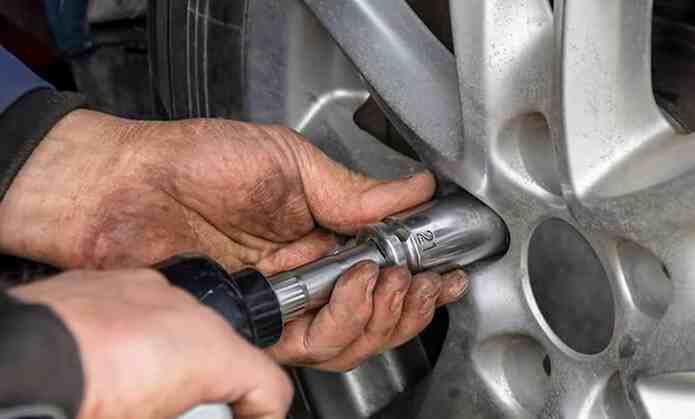
Like most people, you probably think using a standard socket with an impact driver is no big deal. However, there are several reasons why this is not a good idea. Here are ten of them:
1. They can damage your impact driver
Regular sockets are not designed for impact drivers; using them can damage both the socket and the driver. The high torque of an impact driver can easily round off the corners of a regular socket, making it unusable. Even if the socket does not break, it can still become permanently misshapen, making it difficult to remove from the impact driver.
2. They can damage your workpiece
Using a regular socket with an impact driver can also damage your workpiece. The high torque of the impact driver can easily strip bolts or nuts, and the vibrations can cause cracks or other damage to delicate materials.
3. They are less durable
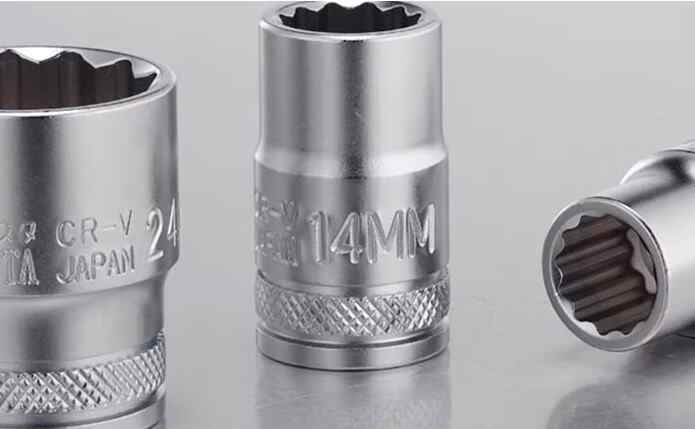
Regular sockets are less durable than impact-rated sockets. The thinner walls of a regular socket can easily be damaged by the high torque of an impact driver, and they are more likely to break under heavy use. Impact-rated sockets are specifically designed to withstand the high torque of an impact driver and will last much longer.
4. They are not as safe
Regular sockets are less safe than impact-rated sockets. The high torque of an impact driver can easily cause a regular socket to break, which can lead to serious injury. Impact-rated sockets are designed to be stronger and less likely to break, making them safer.
5. They are not as precise
Regular sockets are less precise than impact-rated sockets. The higher torque of an impact driver can cause a regular socket to slip, making it difficult to get a tight fit. Impact-rated sockets are designed to grip the fastener more securely, making them less likely to slip and providing a more precise fit.
6. They can be difficult to remove
The high torque of an impact driver can make it difficult to remove a regular socket from the fastener. Despite being subjected to high torque, impact-rated sockets can easily be removed from fasteners.
7. They can damage your tool
The high torque of an impact driver can damage the chuck of your drill or other power tools. Impact-rated sockets are designed to protect the chuck from damage, making them safer for use with an impact driver.
8. They can be dangerous
Regular sockets can be dangerous to use with an impact driver. The high torque of the impact driver can easily cause a regular socket to break, which can lead to serious injury. Impact-rated sockets are designed to be stronger and less likely to break, making them safer for use with an impact driver.
9. They can damage your work surface
The high torque of an impact driver can damage your work surface. Impact-rated sockets are designed to protect your work surface from damage, making them a safer choice for use with an impact driver.
10. They are not as versatile
Regular sockets are less versatile than impact-rated sockets. The higher torque of an impact driver can cause a regular socket to slip, making it difficult to use on different types of fasteners. Impact-rated sockets are designed to grip the fastener more securely, making them less likely to slip and providing a more versatile grip.
What kind of sockets do you use with an impact wrench?
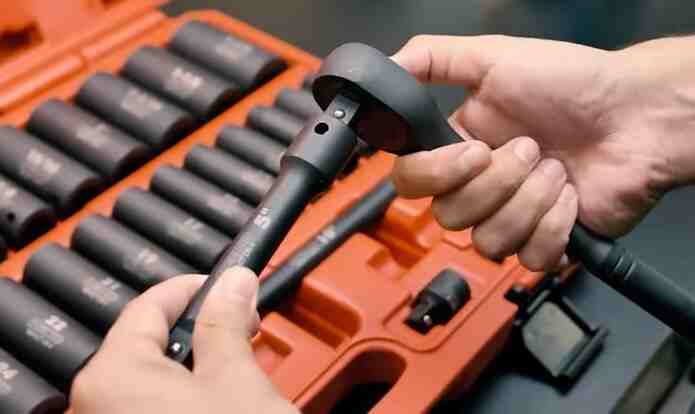
There are a few different types of sockets that can be used with an impact wrench. The most common type is the impact socket, designed to withstand an impact wrench's high torque. Impact sockets are made from hardened steel and have a thicker wall than standard sockets. They also have a higher load rating, which means they can handle more weight without breaking.
Another type of socket that can be used with an impact wrench is the impact swivel socket. This type of socket has a swivel head that allows it to rotate as it is being used. This helps to prevent the socket from being damaged by the high torque of the impact wrench. Impact swivel sockets are also made from hardened steel and have a higher load rating.
If you are looking for a socket that can withstand the high torque of an impact wrench, then an impact socket is the best option. Impact sockets are made from hardened steel and have a thicker wall than standard sockets. They also have a higher load rating, which means they can handle more weight without breaking.
If you need a socket that can rotate as it is being used, then an impact swivel socket is the best option. Impact swivel sockets are made from hardened steel and have a higher load rating. They are also designed to prevent damage from designed to withstand the high torque of an impact wrench. They are made from various materials, including chrome vanadium, chromoly, and titanium.
Final Words
So, can you use regular sockets on an impact wrench? The short answer is no. Impact sockets are specifically designed to work with impact wrenches and will provide the best results. If you try to use a regular socket on an impact wrench, you may damage the socket, the wrench, or both. Instead, invest in a set of impact sockets, and you'll be able to get the job done quickly and safely.